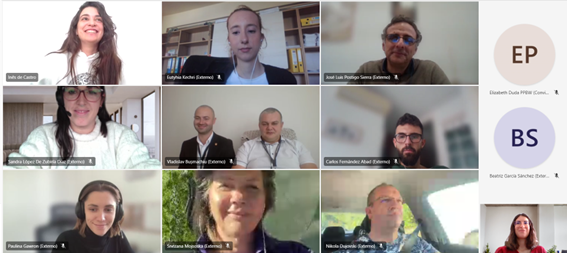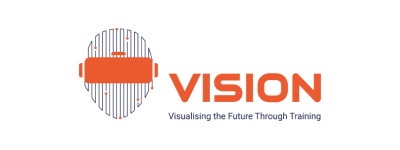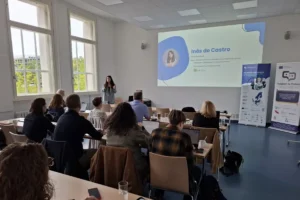Diving into the intricate dynamics of aggression, a new report brings to light a new understanding of reactive aggression in the prison context. This theoretical framework explores the challenges of dealing with this behaviour and advocates for implementing pro-social skills training as a viable solution, with a particular emphasis on the advantages of leveraging VR technology for these interventions.
Although the debate surrounding the delineation of proactive and reactive aggression persists, researchers and professionals converge on the consensus that these distinct causal processes demand targeted interventions.
In prison settings, reactive aggression is a significant concern due to the unique characteristics of the environment. Institutionalised individuals are isolated from society and share a routine in confinement. This environment fosters a pervasive sense of fear and hostility among the prison population, which can significantly influence the way individuals respond to stimuli.
The high prevalence of mental disorders in prison, significantly exceeding that of the general population, further complicates the landscape of reactive aggression in prison environments.
This background information heads the report which finds that, despite the prevalence of reactive aggression in prison settings, the volume of unreported incidents and the scarcity of intervention resources hinder a comprehensive understanding.
According to the collected data, various initiatives in recent years have emerged to quell reactive aggression in prisons, yet their efficacy remains a subject of scrutiny. Dichotomies arise in programme evaluations, with cognitive-emotional approaches and social learning interventions demonstrating promise, while others falter.
As the spotlight shifts to specific programmes targeting gender-based violence and rehabilitation difficulties, the report unveils divergent views on their effectiveness. Notably, experiences from countries like Switzerland, Portugal, and Turkey underscore the potential success of treatments focusing on emotion transformation.
Virtual Reality (VR) has been proposed as a potential tool to help reduce reactive aggression in prison. VR can provide a safe and controlled environment for individuals to practice coping strategies and develop pro-social skills. Additionally, VR can be tailored to address the specific needs and challenges of individuals in prison.
In the context of reactive aggression in prison, VR can be used for virtual exposure therapy, social skills training programmes, empathy and perspective programmes, and training in emotional control and stress management. While more research is needed, VR shows promise as a tool for reducing reactive aggression in prison settings.
The report concludes with a roadmap for the future, urging comprehensive participant inclusion, gender-sensitive programme adaptations, user-friendly designs, and meticulous ethical considerations.
The VR4React project
This report is a significant milestone achieved by the VR4React project, a consortium of eight European organisations. The initiative aims to target reactive aggression within inmates through direct action next to the incarcerated population and staff training. The initiative will support inmates to avoid reactive aggressive conduct, replacing it with pro-social and adaptive behaviours.
Furthermore, the project will promote the enhancement of prison officers’ competencies to respond effectively to reactive aggressive behaviours among inmates.

Having completed the initial report, the VR4React project is now poised to move forward with the development of the VR intervention for the inmates and the b-learning for prison officers. These foundational steps are crucial for creating effective methodologies to address reactive aggression in prison settings.
The consortium is committed to leveraging VR technology to provide innovative solutions that enhance prosocial skills and improve the responses of prison professionals in managing and preventing reactive aggression. The collective efforts of the partners signify a significant stride toward the project’s ultimate goal of fostering safer and more rehabilitative prison environments.
Learn more about this project

VR4React
Reducing Reactive Aggression through Virtual Reality
The VR4React partnership is led by the University Rey Juan Carlos (Spain), and is partnered by organisations from Portugal (IPS_Innovative Prison Systems), North Macedonia (Faculty of Security, University of Bitola), Greece (KMOP – Education and Innovation Hub), the Republic of Moldova (National Administration of Penitentiaries), Romania (Baia Mare Penitentiary), Poland (Polish Platform for Homeland Security), and Turkey (Ankara Probation Directorate).
To learn more about this project visit www.vr4react-project.com
More Rehabilitation, Reintegration and Community Projects

VR4DRUG Rehab
Developing and Using Virtual Reality Technology for the Rehabilitation of Drug Users in Probation Services

VISION
Visualising the Future Through Training

ViRTI
Virtual reality for training inmates

Turning Blue
Integrating Young Offenders Through the Blue Economy

TRIANGLE
Secured digital education system for vocational skills for youngsters in closed institutions

TRAIVR
Training of Refugee Offenders by Virtual Reality
Related news

Presenting resources for victims and practitioners at European meeting on responses to hate-motivated harm
Read More »
Shaping the future of rehabilitation with immersive tools and smart systems at ICPA 2025
Read More »
IPS showcases virtual reality solutions for skills development and stress management at Berlin workshop
Read More »


